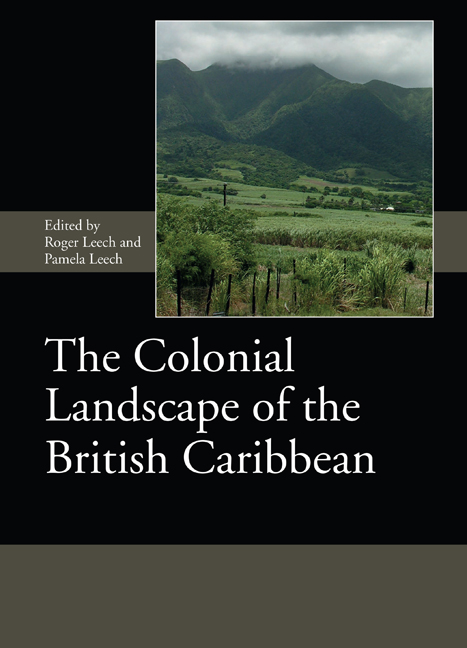Preface
Published online by Cambridge University Press: 31 March 2021
Summary
This study of post-medieval colonial landscape archaeology brings together two separate but linked strands of research. The first is a research project initiated in 2001, when the author was awarded a larger research grant by the British Academy to assess the archaeological evidence for the early colonial settlement and landscape of the two eastern Caribbean islands of Nevis and St Kitts, a pilot project for the historical archaeology of the Atlantic rim, to be undertaken in collaboration with Dr Mark Horton, then of the University of Bristol, and Bruce Williams, then manager of Bristol and Region Archaeological Services in Bristol City Museums. The second was the meeting held in conjunction with the research project and convened by the Society for Post-Medieval Archaeology on Nevis in 2005, and initiated by the author who was at that time its President. The meeting was to coincide with the research then being undertaken as a result of the British Academy grant and to provide, through discussion and subsequent networking, an input to the scholarly publications which would in due course emerge. This aspect of the meeting has been entirely successful, and many of the contributors now remain in contact as a result. Scholars who participated in the meeting have also been busy drawing on these experiences and contacts and producing their own publications in the interim, some of which should be highlighted here for their important contributions to Caribbean studies.
THE BRITISH ACADEMY PILOT PROJECT
Background
The English Leeward Islands were colonized from the late 1620s onwards. By the end of the century the islands were densely settled and their wealth, shipped principally to Bristol and London, far outstripped that of the North American colonies in total. This is a remarkable story, explored by historians but scarcely at all through its archaeology. Much of what might be known of the early settlement of the islands still awaits telling. The archaeological examination of much of the colonial landscape, the plantations and fields of the 17th and 18th centuries, has still to be undertaken, enabling the material record to be considered alongside the meagre documentary sources, decimated by fire, hurricanes, earthquakes, tidal waves and other European powers.
- Type
- Chapter
- Information
- The Colonial Landscape of the British Caribbean , pp. xxi - xxixPublisher: Boydell & BrewerPrint publication year: 2021



